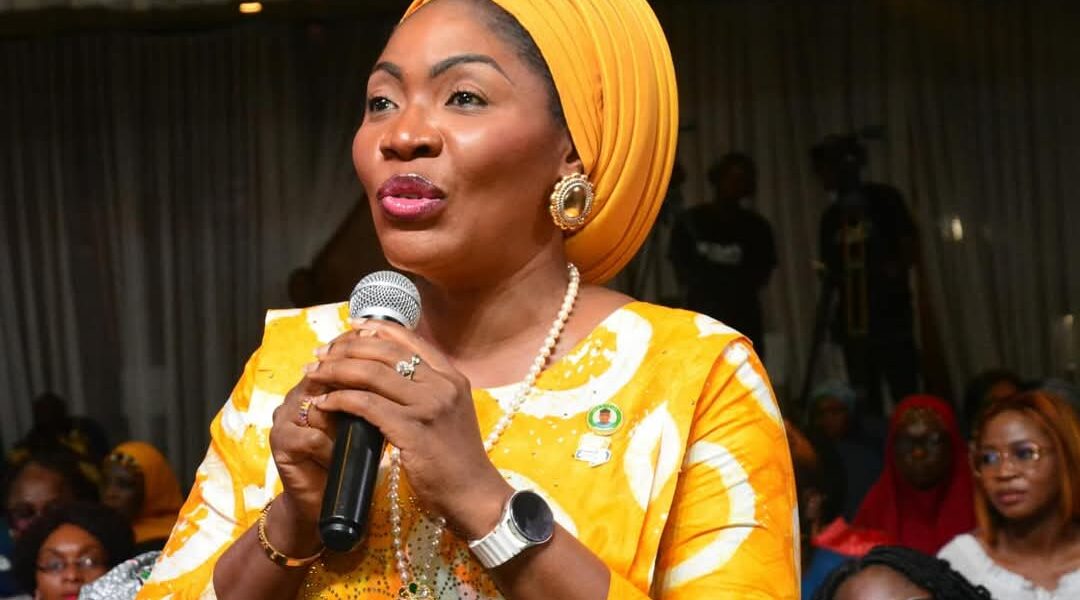Hon. Adijat Motunrayo Adeleye-Oladapo, Ogun State’s Commissioner for Women Affairs and Social Development, is spearheading a bold transformation for women. From economic empowerment to land ownership and GBV intervention, her leadership is redefining equity and dignity for women across the state.
Key Achievements under Hon. Adijat Adeleye-Oladapo
Expanded women’s economic status through the Nigeria for Women Project and the state-backed Okowodapo initiative.
Established four Sexual Assault Referral Centers (SARC) across the state—one per zone.
Built shelters for Gender-Based Violence (GBV) survivors in each zone.
Integrated Skill Acquisition Centers into shelters to aid survivors reintegration and economic resilience.
Launched two toll-free emergency lines to report GBV, with three more underway.
Promoted rural women’s access to land and economic resources through training and grants.
Oversaw capacity-building programs teaching financial literacy and life skills for sustainable livelihoods.
Advocated for inclusive and evidence-based responses to gender issues, reinforcing gender justice.
The Commissioner for Women Affairs and Social Development in Ogun State, Honorable Adijat Motunrayo Adeleye-Oladapo is emerging as a formidable force of change ensuring access to economic assets, land, and justice in a country where structural inequalities still burden women.
Adeleye-Oladapo is not just marking time in office—she’s rewriting the narrative of womanhood, one initiative at a time.
One of her hallmark successes is her leadership over the Nigeria for Women Project , a federal program designed to empower women at the grassroots. Ogun State became a pilot beneficiary under her watch—and it flourished so remarkably that other states now look to it for guidance.
But Adeleye-Oladapo and the Ogun State Government, under Governor Dapo Abiodun, went a step further. Recognizing that only four local governments were included in the federal project, they created the Okowodapo initiative , a homegrown women’s economic empowerment scheme that now reaches every local government area in the state. “Our governor was intentional,” she said. “He wanted all women, across all LGAs, to benefit.”
Under this scheme, thousands of women—particularly in rural areas—have received grants, training, and tools to build sustainable livelihoods. Importantly, these are not just handouts; The program mandates rigorous life and financial skills training before disbursement.
“It’s about building capacity, not dependency,” the commissioner emphasized.
One of the most quietly radical efforts of Adeleye-Oladapo’s tenure is in addressing land ownership among women . It’s an area long ignored but central to economic autonomy. Through the Nigeria for Women Project, women receive training not just in trade and entrepreneurship, but also in understanding their rights to own and control land.
“You can’t talk about economic development without talking about land,” she affirmed. “And you can’t talk about land without including women.”
Asked about the state of women in Ogun today, she doesn’t just give a politician’s answer. “Come and see for yourself,” she challenges, smiling. “Walk through our communities. The women are working, building, thriving. Are we there yet? No. But we are far from where we started
Another of her most groundbreaking interventions is in the area”of Gender-Based Violence (GBV) . When she assumed office, the state had only one Sexual Assault Referral Center (SARC). Today, there is one in each of the state’s four zones, complete with shelters—safe havens for survivors who often have nowhere else to turn.
More than just beds and roofs, these shelters now house Skill Acquisition Centers . “We believe healing must go hand in hand with empowerment,” she said. “Many survivors have no homes to return to, no source of income. We equip them with skills so they leave stronger, not broken.”
These structural interventions are supported by technology too. The ministry now operates two toll-free lines for GBV cases , with three more being developed. Anyone—witness or victim—can report an incident anonymously and free of charge.
On the controversial gender-related issues emerging nationally, such as the case involving Senator Natasha Akpoti-Uduaghan and allegations of misconduct, Adeleye-Oladapo remains measured but firm: “We are for justice, not sentiment. Let investigations be thorough, and let the truth guide the outcome.”
As Nigeria continues to battle persistent gender inequality, Ogun State under its stewardship is lighting a path. Her International Women’s Day message is one of grounded hope: “One step at a time. As long as we do not relent, we will surely get there,” she assured.

